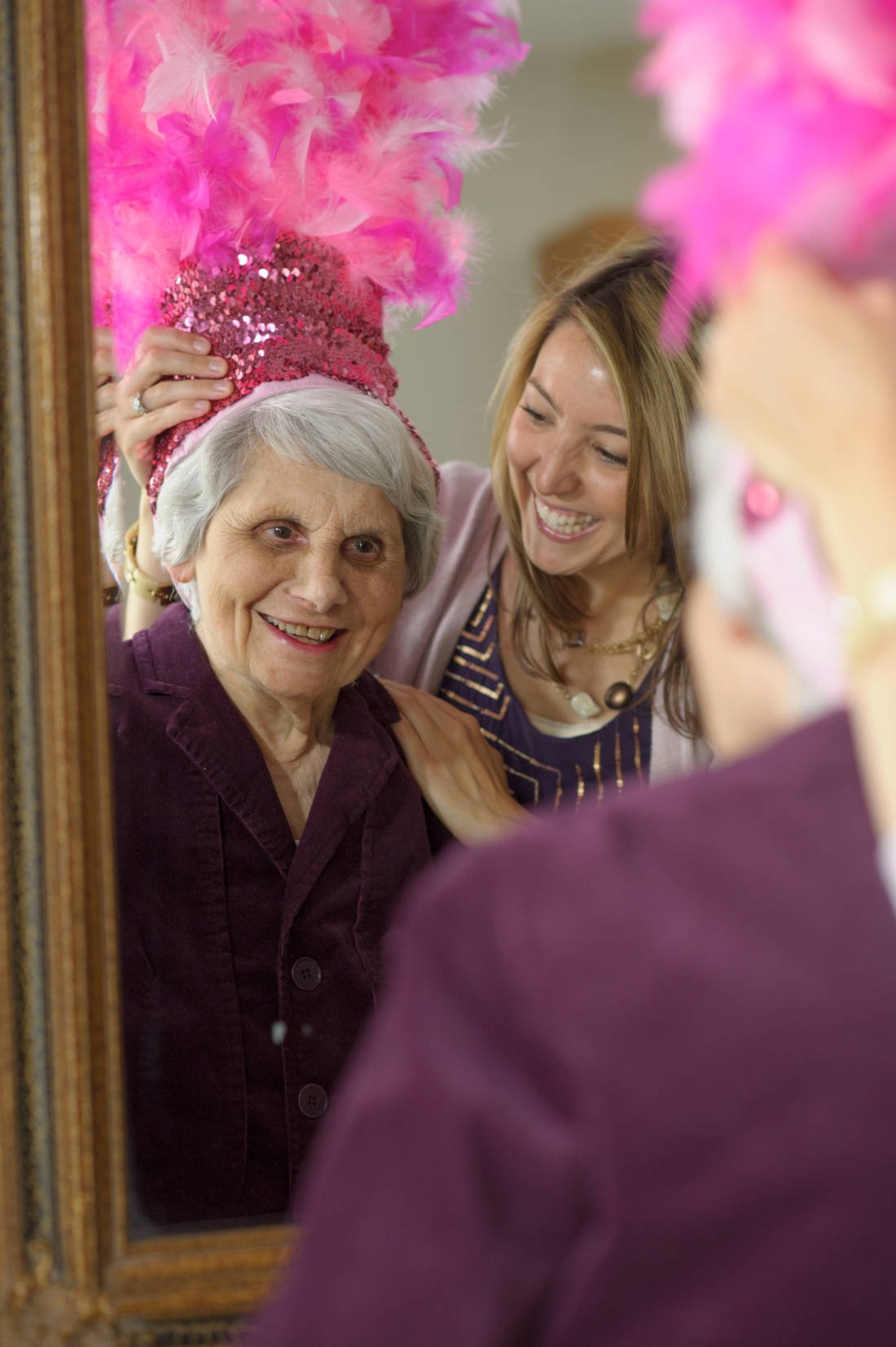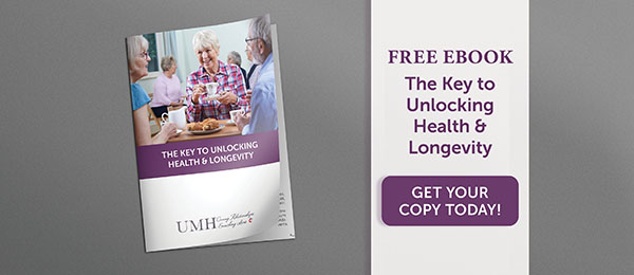5 Mental & Emotional Health Perks of Senior Community Living
Independent Senior Living | senior living homes | Aging & Caregiving | dependent senior living
According to The State of Mental Health and Aging in America, an estimated 20% of people aged 55 years or older experience some type of mental health concern. The most common conditions include anxiety, severe cognitive impairment, and mood disorders like depression, which is the most prevalent mental health problem among older adults. Depression can result in personal distress and suffering, as well as impairments in physical, mental, and social functioning.
Unfortunately, depressive and other mental health disorders are widely under-recognized among older adults and, therefore, often go untreated or undertreated. But that doesn’t make the pain felt by an aging senior any less severe, or help to improve their quality of life under these circumstances.
The truth is many seniors who find themselves isolated from the people and sense of purpose that once fueled them are prone to declines in mental and emotional health. Often, they’re lacking adequate opportunities for human connection, as they struggle to stay social, active, and fulfilled. This can lead to a general sense of loneliness or even more dire mental health conditions.
For lots of older adults, a senior living community is the very thing that gives them back the connection they need to thrive. Here are just a few of the mental and emotional perks that community living can provide to a senior as they navigate this precious stage of life.
1. Feeling of Belonging
It may be true that a senior’s years of working, raising children, engaging in organized sports or similar are behind them, but being part of something bigger than oneself is certainly not. Feeling helpful, needed, and connected to the people and interests in a senior’s life is possible.
A major benefit of living in a senior community is the sense of belonging and friendship that residents experience. It’s a stark contrast to the loneliness, depression, or mental decline that a senior can experience when they live in isolation. Community living offers inherent opportunities for socialization, companionship, fun, and inclusion.
2. Renewed Purpose
Throughout our lives, we fill different roles (e.g., parent, sibling, coworker, coach, friend, volunteer), and they fill us with a sense of purpose or meaning. They motivate us to get up and embrace the day, to do something that makes a difference. For seniors, this sense of purpose can get lost amidst experiences of isolation, loneliness, loss of independence, or deteriorating physical health.
Community living, however, creates the support and space for a senior to regain that purpose and engage in the activities that interest them. It could be as simple as the friendship developed with neighbors, and being the shoulder someone else can lean on. Or it might involve learning a new skill, joining a club, attending educational events, or cooking for family and friends. Whatever the case might be, this renewed sense of purpose supported by community life makes all the difference in sustaining a senior’s mental and emotional health.
3. Sense of Safety
For many seniors, the idea of facing age-related physical and mental challenges is daunting. It can create a great deal of anxiety around even basic functions of daily living. Worry might spring from any sort of safety-related issue, from driving where you need to go, to remembering to take medications properly, or preventing a major slip or fall. Older adults who live alone in their homes are vulnerable to many hazards and threats that can give them ongoing cause for concern.
Senior living communities help alleviate this mental burden by creating a secure and comfortable environment for residents. Many do this by ensuring secure entrances and exits, alert systems, staff support, transportation, and assistance with daily activities (depending on your required level of care). Simply knowing that these protections and assurances are in place is enough peace of mind to ease a senior’s related mental stress and help them grasp an improved outlook on life.
4. Socialization & Engagement
When you’re living alone or without easy access to a range of social activities, it’s easy to slip into an everyday routine of isolation and boredom, which is a major mental health risk for seniors. The importance of making social engagement an ongoing priority can’t be emphasized enough. Human nature is such that we crave engagement with other people, and as we age, it’s crucial to take proactive steps to cultivate a healthy social life.
In a senior living community setting, there’s so much opportunity to come together with other residents and share common interests. From shared meals and the on-site calendar of events to scheduled trips to local attractions, as well as participation in outreach and volunteer programs, socialization is built into the fabric of community living.
5. Support for Mental Health Conditions
With age comes a decreased ability for our brains to regulate hormone levels, making it especially challenging for seniors experiencing immense anxiousness or worry to minimize the physical impacts. These hormones can have detrimental long-term impacts, potentially affecting vital mental health aspects like memory and contributing to depression. Anxiety, depression, and loneliness can cause sleep loss, weight loss, mood swings, and even thoughts of suicide.
Senior living communities support mental health by not only providing a social support system, but also a team of staff who can help recognize symptoms and intervene when necessary. Getting proper professional help when a senior is struggling with mental and emotional challenges that impact everyday life is absolutely essential.
It’s never too late to prioritize mental and emotional health in a senior’s life. Particularly if you or an aging loved one are suffering the effects of loneliness and isolation, now’s the time to consider how community living just might be the solution to these challenges.
Interested in learning how United Methodist Homes’ senior living community provides a wealth of offerings and opportunities to support the health and wellbeing of our residents? Contact us today or schedule a complimentary visit now.
About Marissa Salvesen
My journey into the world of senior living began when I started working for United Methodist Homes in 2010. Starting as an Activities Director at one of our award-winning assisted and independent living communities and then transitioning to Marketing and Promotions Manager for UMH, I now work as the Manager of Mission Development, fostering the Mission and Values of our organization. I love sharing stories about the many ways we build meaningful relationships and enrich the lives of those we serve, and am proud to be part of building UMH’s 140-year legacy of caring. Wondering what makes our communities such special places to live and work? Connect with me and find out!

Our Blog is a 2016 Platinum Generations Award Winner! The Generations Award is an annual international competition for excellence in senior marketing recognizing professionals who have communicated to the 50+ Mature Markets.





